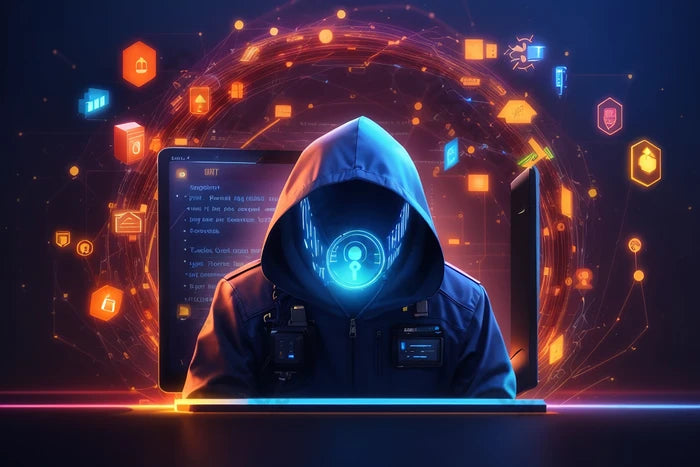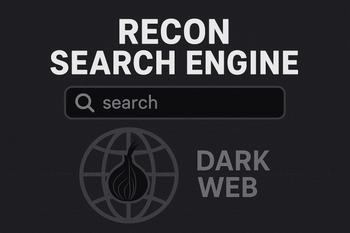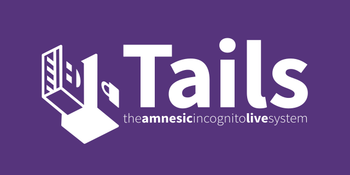
Guardians of the Digital Realm: Demystifying Cybersecurity and its Empowering Impact on Your Online World
|
|
⌛ Time to read 6 min
Shipping Worldwide 🛩️
Call Us: +357 97729099 📞
WhatsApp Us: +357 97729099 🔔
Email: info@cybershopcyprus.com 📧
Follow Us On Social Media ✌️


✍️ Written by: Nearchos Nearchou
|
📅
|
⌛ Time to read 6 min
In an era dominated by digital connectivity, our lives have become intricately woven into the vast web of the Internet. From work emails and banking apps to social media and streaming services, the digital realm touches nearly every aspect of our daily existence. 🌐
However, with this unprecedented convenience comes an urgent need for robust protection against the ever-growing threats that lurk in the shadows of cyberspace. This is where the guardians of the digital realm —the unsung heroes of cybersecurity—step in.
In this article, we will explore the fundamentals of cybersecurity, uncover the evolving threats we face, and reveal how cybersecurity empowers both individuals and organizations to thrive in the online world with confidence and peace of mind.
Cybersecurity is the practice of safeguarding computer systems, networks, and data from unauthorized access, attacks, and damage. It encompasses a wide range of technologies, policies, and practices designed to protect our digital assets from both internal and external threats.
Common cyber threats include:
🐛 Malware (malicious software)
🎣 Phishing attacks (deceptive messages designed to steal information)
🔒 Ransomware (holding data hostage)
🧑💻 Social engineering (manipulating individuals into breaking security protocols)
Ultimately, cybersecurity aims to build a secure and trustworthy digital environment, where individuals and organizations can operate with safety and integrity.
As technology evolves, so too do the tactics of cybercriminals. Today’s threats are not only more frequent but also more sophisticated and targeted than ever before.
Modern-day cybercriminals employ:
AI-powered phishing campaigns that can mimic human language flawlessly
Zero-day exploits that take advantage of unknown software vulnerabilities
Deepfake technology to impersonate executives or public figures for fraud
High-profile incidents—such as the 2023 MOVEit file transfer breach or the global ransomware attack on hospitals in early 2024—highlight the devastating potential of cyberattacks when defenses are not adequately prepared.
Cybersecurity professionals are in a constant arms race, adapting and innovating to stay ahead of these ever-changing threats. 🧑🚀
While cybersecurity experts work tirelessly behind the scenes, every individual has a critical role to play. Practicing good cyber hygiene is like wearing armor in the digital world. It reduces vulnerabilities and helps create a safer online ecosystem for all.
Here are some key personal cybersecurity practices:
✅ Use strong, unique passwords for every account
✅ Enable two-factor authentication (2FA) wherever possible
✅ Regularly update your software and devices
✅ Be skeptical of unsolicited emails and links
✅ Backup important data in secure locations
By spreading awareness and promoting responsible online behavior, we empower people to take control of their digital safety. 🙌
For businesses, cybersecurity is no longer optional —it’s a mission-critical necessity. Organizations of all sizes handle sensitive data, from customer information to trade secrets. A successful cyberattack can lead to:
💸 Financial losses
🔧 Operational disruption
📉 Reputational damage
⚖️ Legal liabilities
That’s why cybersecurity is now embedded into corporate strategies through:
Enterprise-wide security policies
Implementation of cybersecurity frameworks like NIST or ISO 27001
Regular penetration testing and employee training
Businesses that invest in cybersecurity demonstrate responsibility, trustworthiness, and resilience in an increasingly volatile digital landscape.
Artificial Intelligence (AI) is quickly becoming one of the most powerful tools in cybersecurity. Using machine learning algorithms, AI systems can:
🧠 Analyze vast datasets in real time
🔍 Identify patterns and anomalies
🚨 Detect and respond to emerging threats faster than any human team could
For instance, AI-powered tools can flag unusual login behavior or detect abnormal traffic within a network—potential signs of a breach. As cyber threats become faster and more complex, AI helps level the playing field for defenders.
But with great power comes great responsibility: AI itself can be exploited, so securing AI models and ensuring ethical implementation is equally important.
Cyber threats know no borders. A vulnerability in one country can be exploited by a hacker halfway across the globe. That’s why international collaboration is vital to building a resilient and secure global digital infrastructure.
Governments, private sector organizations, and global institutions are working together to:
🔁 Share threat intelligence
📜 Develop cybersecurity laws and ethical standards
🛡️ Coordinate international responses to cyber incidents
Strong cybersecurity governance ensures that technology is used responsibly and that every user—regardless of their country—can enjoy the benefits of a safe and open Internet.
The cybersecurity landscape will only grow more complex in the coming years, with emerging technologies introducing both new opportunities and risks:
🌐 5G networks will expand the attack surface
🔗 IoT devices will create millions of new entry points
⚛️ Quantum computing may one day break current encryption models
🧬 AI-driven malware could automate attacks in terrifyingly creative ways
The future of cybersecurity will depend on:
Continuous innovation
Cross-sector collaboration
Education and awareness for users of all ages
Inclusion of cybersecurity principles in product design (“security by design”)
The guardians of the digital realm—cybersecurity professionals, ethical hackers, educators, and aware citizens—will be at the forefront of this evolving fight.
In a world where our lives are increasingly intertwined with digital platforms, cybersecurity stands as the cornerstone of trust, freedom, and safety online.
Whether you're an individual safeguarding your personal data, a business protecting your assets, or a policymaker shaping the digital frontier, we all share a common responsibility: to protect the world we’re building together.
Let’s recognize and appreciate the tireless work of cybersecurity professionals—the modern-day sentinels of the Internet—who empower us to explore, connect, and thrive in a secure and dynamic digital world. 🔐🌟
Nearchos Nearchou
Nearchos Nearchou is a determined person and 1st Class BSc (Hons) Computer Science and MSc Cyber Security graduate. He is a big tech-lover and spent several years exploring new innovations in the IT field. Driven by his passion for learning, he is pursuing a career in the Cyber Security world. Passionate about learning new skills and information that can be used for further personal and career development. Finally, he is the author of the book “Combating Crime On The Dark Web”.
Cybersecurity is crucial in the digital age as it safeguards computer systems, networks, and data from unauthorized access and cyber threats. It ensures a secure online environment, protecting individuals, businesses, and organizations from potential harm, data breaches, and financial losses.
Common cyber threats include malware, phishing attacks, ransomware, and social engineering. Being aware of these threats helps individuals and businesses take proactive measures to defend against potential risks and secure their digital presence.
Individuals can improve their online security by adopting good cyber hygiene practices, such as regularly updating software, using strong and unique passwords, enabling two-factor authentication, and staying vigilant against phishing attempts. These practices contribute significantly to personal digital security.
Artificial intelligence plays a crucial role in cybersecurity by enhancing detection capabilities and streamlining response times. AI-powered systems can analyze vast amounts of data, identify patterns, and detect anomalies, ultimately improving the efficiency of cybersecurity measures and providing a more robust defense against evolving cyber threats.
Businesses can implement robust cybersecurity measures by adopting comprehensive cybersecurity frameworks, regularly updating security protocols, conducting employee training programs, and investing in advanced security technologies. These measures help businesses protect sensitive data, mitigate risks, and ensure the continuity of operations in the face of cyber threats.
📬 Subscribe to Our Newsletter
Stay updated with the latest tech insights.
Tax included.
| Price |
|---|
| SKU |
| Rating |
| Discount |
| Vendor |
| Tags |
| Weight |
| Stock |
| Short Description |
Description here
Description here


